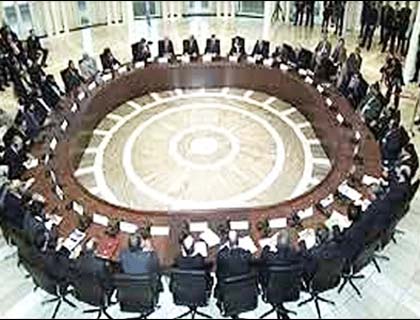These days the hot topic in the 'elite and expatriate bubble' of Kabul is the Bonn II Conference. Analysts, experts and diplomats come up with different perspectives and predictions about whether this event will change Afghanistan's roadmap or just be one more international conference on Afghanistan. However, the recent news is that the conference is no more Bonn II because of the speculations it has created following the example of Bonn I, therefore, it's now called another international conference on Afghanistan in Bonn. The conference is expected to take place during the first week of December with participation of over 80 Foreign ministers and foreign delegations under the chairmanship of the Afghan President.
Timing has always mattered in politics about Afghanistan, although it has not often been with the best interests of Afghanistan in mind. The London Conference in early 2010 was organized at a time when the public opinion polls in Europe showed the lowest support for the Afghanistan project in ten years. Therefore, the London Conference pioneered the Peace and Reintegration Program that earned millions in one day.
Many continue criticizing the London Conference for only setting an agenda for an exit strategy for Nato and others from Afghanistan, rather than planning for an inclusive process towards building peace in the country. Of course, that was a high time for the elections in the UK and the Brown administration was looking for success stories.
Questions asked by many Afghans whose voices do not make the news are: Will the Bonn II Conference now planned for December this year be another step in speeding up the withdrawal and Inteqal (transition) process? Or, can it bring some meaningful stability for Afghanistan's future?
What we have today in Afghanistan can in large parts be credited to the process started with the first Bonn Conference that was held in December 2001. There have been a number of achievements. For example, first time power-transfer through elections, 27 percent women in the parliament, eight million children in schools, 80 percent of Basic Health Package access to rural communities, thousand of miles of roads constructed and reconstructed and the flourishing telecommunication business in the country are the direct or indirect outcomes of the Bonn Conference plan. Therefore, similar expectations can be attached to Bonn II.
However, there was an important negative outcome of the Bonn I which was the power sharing that took place and many Afghans believe that it was a historical mistake as it supported promotion of warlords and faction leaders in the political arenas. Or in simple terms, it created grounds for the revival of the Taliban movement.
There is an interesting rhetoric taking shape with the leadership of many international community representatives when it comes to Afghanistan. They have a default response to every query. "Well, this is an Afghan process, and the Bonn Conference is going to be chaired by the President of Afghanistan and we as the international community don't have anything to do with it". This is what I would call selective respect for sovereignty, particularly when I learnt more about the Conference in meetings in Europe than from many discussions with the relevant officials of the Afghan government; especially when the Bonn Conference is being led by the International Contact Group chaired by the German representatives.
Only if that "Afghan leadership" listens to the voices of millions of ordinary Afghans in setting the agenda of the Conference. That is, will it be the voices of those who continue losing family members in the weekly suicide attacks, the clerk who has his/her salary pending for the 4th month in a government ministry, the farmer whose daughter was gang-raped by the police forces? Or, will it be the voices of those who sit in secured compounds miles away from the society and who only hear about the situation through the news?
Meanwhile, there are growing 'Khabar Haye Sare Chawk' (unofficial version of the news spread in people's circles) that the international community leaders and the Afghan President have decided to bring in some of the Taliban leaders and their representatives to the Bonn II in order to make up for their exclusion in the first Bonn Conference.
If the leaders and politicians of the international community and some of the out-of-touch government officials are the only voices from Afghanistan, then who will represent the opposition, or in the words of 'the anti-Taliban constituency'?
Anti-Taliban not in the sense of being against Talibs as the human beings fighting a violent war in Afghanistan but being against their political missions as we experienced prior to 2001.Who are these 'anti-Taliban constituencies?
It is the 12.9 million female population[1] of the country that are not regarded as a human being by the Taliban standards, it is the 30,000 Helmandis who cheered at a female concert in Lashkargah for the first time in the history negating Taliban's ban on music -or the 27% women politicians who struggle everyday to change their realities in the Afghan parliament- it is the thousands of local civil society organizations that are losing lives at the fore fronts of fights for media freedom and democratic values.
Will they get a chance to envisage their version of Afghanistan's vision?
More importantly, how will the Bonn II create a roadmap to end the ongoing violence that has taken thousands of Afghan lives so far, through a political settlement between the Palace and some of the ranks of the Taliban?

